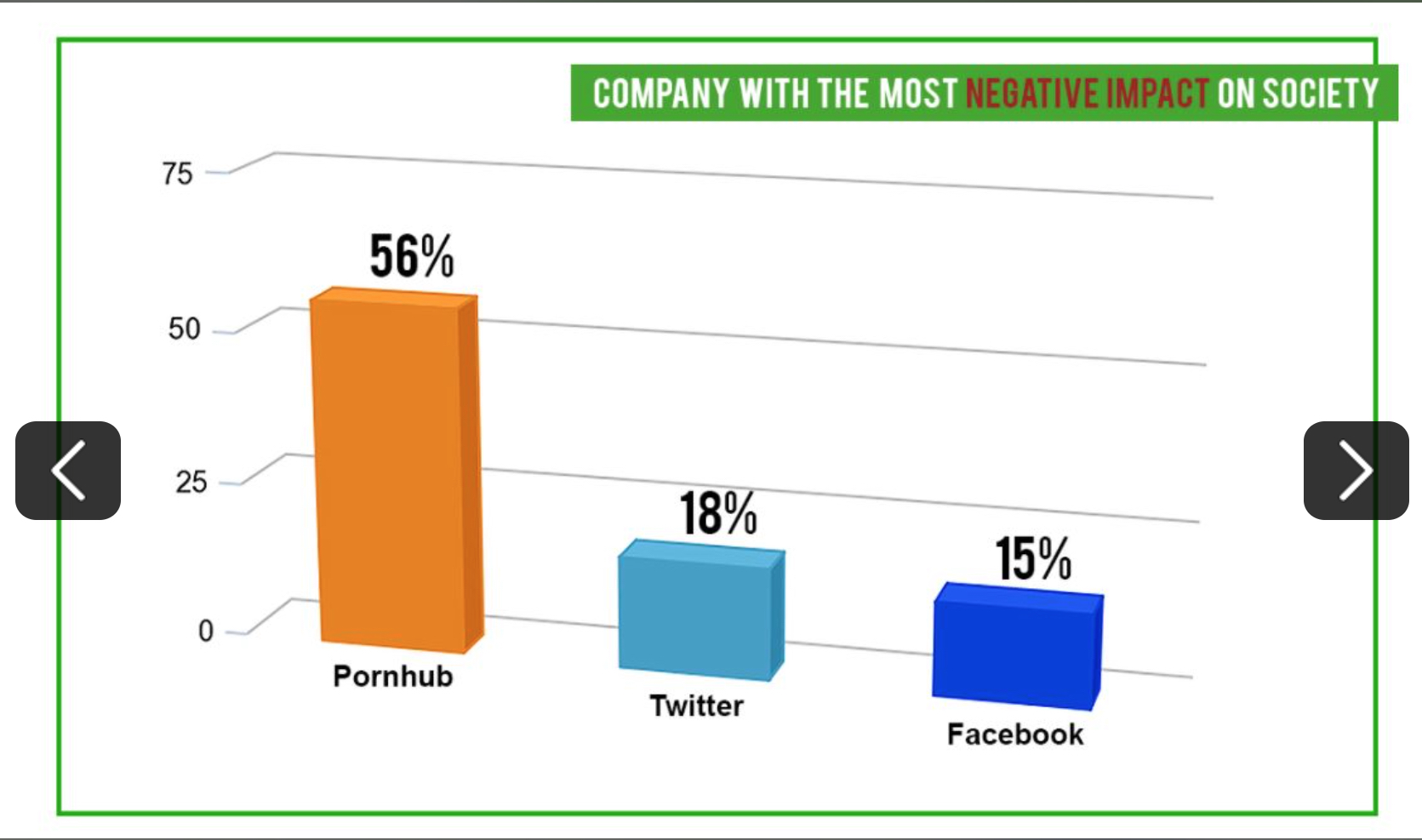The Future of Porn: Growing Porn-Critical Movement
Gallery

If you’re a regular on the Twitter scene, chances are, in the recent months, you’ve come across some tweets about porn. The conversation was started by Nicholas Kristof in his article in the New York Times. The article investigated the amount of rape, revenge porn, and child abuse growing rampant on porn sites especially Pornhub. And this is critical because according to a digital marketing survey, Pornhub is the third most influential tech company in the 21st century, surpassing Microsoft, Apple, and Amazon.
With this public awareness of the horrors of Pornhub and the porn industry, major credit card companies like MasterCard and Visa have pulled back and decided to reinvestigate their business with PornHub and its parenting company Mindgeek. Faced with the risk of loss in business, PornHub immediately took action against unverified videos, removing nearly 10 million videos from its site.
While it may seem like criticisms of the porn industry were sparked by the recent article in the New York Times, in reality, the porn-critical movement has been growing steadily over the years. Pornography has been a bipartisan concern for lawmakers both in the U.S. and in Canada. In a tweet posted on March 10, 2020, Canadian lawmaker Arnold Viersen revealed a letter sent to Prime Minister Justin Trudeau signed by nine lawmakers to investigate Mindgeek over its association with sex trafficking, child exploitation, and sexual assault.
U.S. lawmakers from various political spectrums including Rep. Jackie Speier D-Cali and Rep. Ben Sasse R-Neb have expressed their concern about human exploitation and child abuse perpetrated by pornography several times. The most recent action being this bipartisan bill to stop internet sexual exploitation. The bill holds platforms hosting pornography to various liabilities such as requiring any user uploading a video to the platform to verify their identity, to upload a signed consent form from every individual appearing in the video, prohibiting video downloads from these platforms, and requiring platforms to use software to block a video from being re-uploaded after its removal.
However, it is not only the government officials who are calling out the porn industries on their harmful influences, well known ex-porn stars like Mia Khalifa have consistently shared the toxic, abusive experiences she has had with porn companies on her social media. Big-name celebrities like Terry Crews, Marisol Nichols, and Lamar Odom have also been vocal about their criticism of pornography and the industry.
Pornography leaves its dangerous footprint in almost all aspects of our lives and more and more people are becoming conscious of them. In a Reddit support group with more than 750 thousand followers called r/nofap, people are helping each other with porn addictions. While the focus is on battling the physical and mental damages caused by porn, often the discussions take turns criticizing the porn industry for its social and political wounds as well.
Of course, children and teenagers who are often the focus of the actions against pornography are not falling behind in this movement. On the popular video-sharing app TikTok, the CancelPorn hashtag is seeing more and more participants each day. With their official account having over 270 thousand followers and more than 6 million likes, teens are leading the conversation on the porn crisis and the way it is affecting the youth today.
Although the development of the Internet has contributed greatly to the hazards of the porn industry, it has also made possible the movement against it. More than two million people have signed this petition to hold Pornhub accountable for aiding human-trafficking.
In our increasingly sex-positive world, the line between sexual-empowerment and sexual-exploitation has become blurry. Billion-dollar industries have enabled and profited off of rape, child abuse, and modern-day slavery, leaving countless victims in our communities. This growing porn-critical movement can shape how we deal with human-sexuality in our society.
Henry Ford College is hosting a live webinar about human trafficking at 2:00 p.m. Jan. 26. The event is co-sponsored by the HFC Office of Student Conduct and Compliance and Title IX, the HFC Counseling Office, HFC Student Activities, and HFC Campus Safety. For further information, contact Anwar Beydoun at ambeydoun2@hfcc.edu or Munira Kassim at mmkassim@hfcc.edu.
